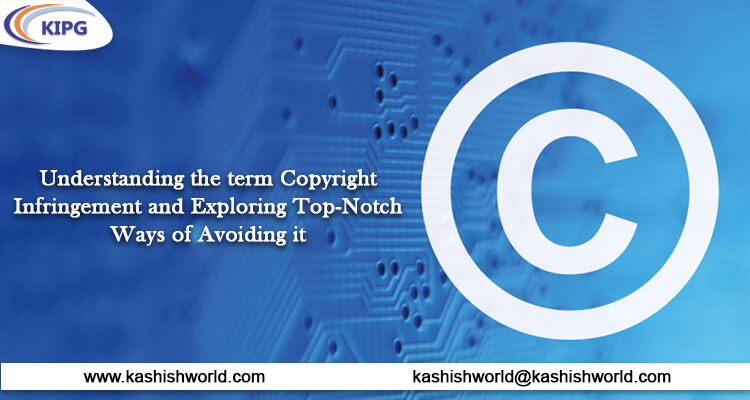
Intellectual works such as written stories, poems, recorded songs, artworks, and photographs are just some of the original creations that can obtain Copyright Protection. It implies that the authors, creators, or artists or these original works own the exclusive rights to sell, distribute, derive, or modify their material. Without the owner’s expressed permission, it is not legal for anyone to use the copyrighted work. Otherwise, the owner can sue you for violating the Copyright Law, and you may be held liable for Copyright Infringement.
COPYRIGHT INFRINGEMENT
Copyright Infringement is just another term for theft of ideas and piracy. To be specific, it refers to the act of stealing someone’s original creations and violating his Intellectual Property (IP). It is indeed an illegal offense, especially when the person who has copied the idea, recoups all the benefits on behalf of the original creator.
EXAMPLES OF COPYRIGHT INFRINGEMENT
- A classic example of copyright infringement involves the use of music in your videos. If you haven’t obtained the legal consent to use a song or audio as the background music in your creative works, presentations, or movies, you could be held liable for copyright infringement. Nowadays, various video-sharing social media platforms like Facebook and YouTube actively mute songs and music for preventing Copyright Violation.
- Quite often, many creators provide the option of downloading their original works for a fee. However, downloading a TV show, music, software, or movie, that is not owned by the creator leads to copyright violation. Such non-authorized websites automatically prompt you to share the same material with others as well, which results in you redistributing the copyrighted material intentionally or unintentionally and without the owner’s permission or knowledge. Another typical example of copyright infringement involves using a creator’s artwork, photograph, or graphics in your website’s posters, banners, or brochures, without seeking their permission. You can’t use such material in your marketing campaigns as well until and unless you either buy the photograph or artwork or pay the creator a certain fee. Furthermore, purchasing or paying for someone’s artwork doesn’t permit you to use the same for merchandising without any explicit consent.
- Even if it’s a derivative or inspired work, you can’t copy it and claim it as your own; it is referred to as ‘plagiarism’ in the music or publishing industry.
- Although it is reasonably acceptable to record a TV show at home for watching it later; however, passing the recorded material to others, producing a bunch of its copies to sell and gain profit, or broadcasting and posting the video online becomes a case of copyright infringement.
HOW TO AVOID COPYRIGHT INFRINGEMENT
In today’s digitally transformed world, it has become ever-easier to reproduce or distribute the original works of the creators. However, the risks and consequences associated with copyright infringement won’t be worth the trouble to your finances, peace of mind, reputation, and time. Few tips to avoid copyright infringement are as follows:
Always Assume There’s Copyright
Assuming that a created work has copyright protection is the safest option. Even if you don’t come across any official statement regarding the public use of that particular material, there’s still a probability that someone already owns its Intellectual Property Rights (IPRs). Therefore, it is better to get written consent from the copyright owner whose work you wish to use. Put in efforts to contact the owner for making or negotiating a deal.
Research Well Before Using the IP of Others
Some creators share their works for a price, while others grant permission, only if there is proper attribution. In case there are no attribution conditions or specific fee involved, you must go through the clause of Terms and Conditions on the official website of the copyright owner. Besides, contacting the owner for his expressed consent is usually the best possible way of preventing infringement.
Understand the term ‘Fair Use’
Making yourself aware of the rights under ‘Fair Use’ can help you in taking advantage of the original works for non-commercial endeavors. However, it is imperative to know about a few factors that may affect your usage and its value in the market. Consulting a legal expert on copyright laws can clear your doubts as well.
Pay Someone for the Original Works or Create your Own
If you have the right creative and artistic skills, you can also come up with your original content, rather than copying someone else’s work. On the other hand, if you have adequate financial resources, then you can pay other people to be the creator yourself.
Source Free-to-Use Materials under the Public Domain
Nowadays, there are many sources for free-to-use materials under the Public Domain. You can search for the works with ‘Creative Commons’ (CC) license (enabling the free distribution of the otherwise copyrighted work), which can be commercially viable.

